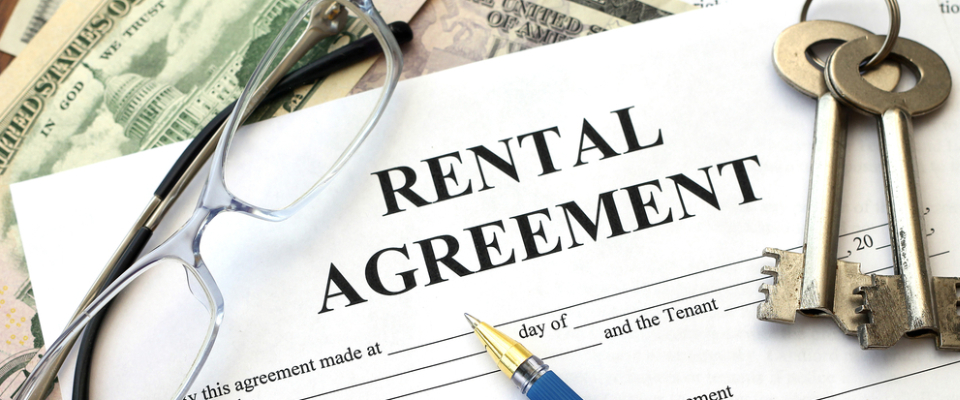Renting an apartment with a cosigner: Everything you need to know
Share this article:
Renting can feel like a full-time job. Between searching for apartments that fit your budget, gathering paperwork and passing background and credit checks, the process can be overwhelming, especially if you’re renting for the first time or rebuilding your financial profile. Many renters hit a roadblock when landlords require a higher credit score or income than they currently have. If that sounds familiar, there’s a practical solution: renting with a cosigner.
A cosigner can make the difference between getting approved for your dream apartment or having your application denied.
What to know about renting with a cosigner:
- Renting with a cosigner can help you qualify for an apartment if you have low credit, limited income or no rental history.
- A cosigner is someone who signs your lease and agrees to pay rent if you can’t, giving landlords extra confidence in your application.
- The cosigner doesn’t usually live with you but shares full financial responsibility for the lease.
- Before renting with a cosigner, make sure both of you understand the legal commitment, how long it lasts and what happens if your finances change.
Let’s break down what a cosigner does, when you need one and how to make this arrangement work smoothly for everyone involved.
What is a cosigner?
A cosigner is someone — often a trusted family member or close friend — who agrees to take on financial responsibility for your lease. When you rent with a cosigner, they sign the lease agreement alongside you, promising to pay rent or cover damages if you’re unable to. This gives landlords extra peace of mind that the rent will be paid on time, no matter what happens.
Think of a cosigner as your financial safety net. They’re not usually living with you, but they share the legal obligation for the lease. Because of this, landlords often view renters with a cosigner as lower-risk tenants, which can make approval faster and easier.

Keep in mind that a cosigner’s role is serious — they’re not just a character reference or someone vouching for you verbally. If you miss rent or break your lease, your cosigner could be held legally and financially responsible. This means their credit score, income, and overall financial reputation could be affected by how you manage your lease.
Cosigner vs. guarantor: What’s the difference?
It’s easy to confuse the terms cosigner and guarantor, but they have slightly different meanings in the rental world.
-
A cosigner is a co-tenant on the lease. They sign the rental agreement and are equally responsible for paying rent and following lease terms. In some cases, they may have certain rights to access the property (depending on local laws and the lease terms).
-
A guarantor, on the other hand, doesn’t live in or have rights to the apartment. They only step in if you miss rent or default on your lease. The landlord can pursue them for payment, but otherwise, they’re not directly involved.
Some landlords prefer guarantors to cosigners because it keeps occupancy simpler. Others may only allow cosigners if they’re close family members. Always ask the landlord which option they accept before submitting your rental application.
When do you need a cosigner?
You might need a cosigner when your rental application doesn’t meet a landlord’s financial or credit requirements. Here are a few common situations where having a cosigner can make a big difference:
-
You have no rental history. If you’re renting for the first time — maybe right after college or moving out of your family home — a cosigner can help establish your credibility.
-
Your rent exceeds 30% of your income. Most landlords use this benchmark to assess affordability. If your rent takes up too much of your paycheck, a cosigner can reassure them that payments will still be covered.
-
Your credit score is low or inconsistent. Even if you’ve made progress rebuilding your credit, landlords may still hesitate. A cosigner’s stronger financial profile can boost your chances of getting approved.
-
You’ve had an eviction or financial setback. Life happens. A job loss, medical bills, or other issues can affect your rental history. A cosigner can help you overcome those past hurdles.
These situations apply whether you’re renting an apartment, a townhouse or a build-to-rent home. Having a cosigner doesn’t just help you get approved — it can also open doors to better locations, amenities and lease terms.
Who makes a good cosigner?
Here’s the truth: not everyone qualifies to be a cosigner. The best candidates are financially stable and fully understand the responsibility they’re taking on. This person could be a parent, sibling, close friend or even a trusted mentor.
A strong cosigner typically has:
-
A good credit score (often 680 or higher)
-
A steady income and proof of employment
-
A low debt-to-income ratio
-
A history of paying bills and loans on time
Before asking someone to cosign, have an honest conversation. Explain what you’re asking them to do, what could happen if you can’t make payments and how long the lease lasts. Transparency builds trust and helps prevent misunderstandings down the road.

Also, keep in mind that the cosigner will go through the same screening process as you. This usually includes a credit check, proof of income and possibly a background check. The landlord will want to confirm that the cosigner is financially capable of covering the rent if needed.
What to discuss before signing with a cosigner
Renting with a cosigner can be a great solution, but it’s important to cover all possible scenarios before signing the lease. Here are some key topics to talk about:
1. Lease renewals and duration
A cosigner’s obligation continues until the lease ends. If the lease automatically renews, their responsibility renews too. If your financial situation improves, let your landlord know — you may be able to remove the cosigner from future agreements.
2. Removing a cosigner
If you want to drop your cosigner before the lease term ends, your landlord may need to re-evaluate your income and credit. Some landlords will simply update the lease with an addendum; others might require you to start a new lease altogether. Be aware that this could also lead to new lease terms.
3. Unexpected financial changes
If you lose your income or need to break the lease early, your cosigner becomes responsible for paying rent until the landlord finds a new tenant. Fortunately, landlords are required by law in most states to make a good-faith attempt to re-rent the property, which helps minimize how long your cosigner is on the hook.
4. Impact on relationships
Money and personal relationships don’t always mix easily. Make sure your potential cosigner feels comfortable and fully informed before committing. Even with the best intentions, misunderstandings about money can cause strain — so communicate openly and honestly.
Should you rent with a cosigner?
Having a cosigner can open up housing opportunities you might not qualify for on your own, but it’s not a decision to take lightly. A cosigner is legally and financially tied to your lease, which means your actions can directly affect their credit and peace of mind.
Before moving forward, ask yourself:
-
Can I realistically afford the rent without relying on my cosigner?
-
How quickly can I improve my credit or increase my income so I no longer need one?
-
Do I understand the full legal responsibility I’m asking someone to take on?
If you answer “yes” to those questions, then renting with a cosigner can be a smart stepping stone toward greater financial independence.
Once you’ve secured the apartment, do everything you can to pay rent on time and keep communication open with your cosigner. Treat them as your safety net but aim never to use it. The more consistently you handle your payments, the sooner you’ll be able to rent on your own.

Renting with a cosigner can simplify the approval process and help you build trust with future landlords. Just make sure everyone involved understands the agreement and the responsibilities that come with it.
If you handle the arrangement responsibly, it can be a win-win: you get the apartment you want and your cosigner helps you establish a stronger rental and credit history for the future.
Share this article:
Alexandra Both is a senior real estate writer and research analyst with RentCafe. She brings over almost 10 years of real estate writing experience, having served as a senior editor at Commercial Property Executive and Multi-Housing News. A seasoned journalist, Alexandra has worked across print, online, and broadcast media. Her work has been featured in a variety of prominent outlets, including The New York Times, The Guardian, USA Today, and Architectural Digest. She holds a B.A. in Journalism and an M.A. in Community Development.
The Ready Renter has your back
Tips, news, and research curated for renters, straight to your inbox.




Related posts
Subscribe to
The Ready Renter newsletter






